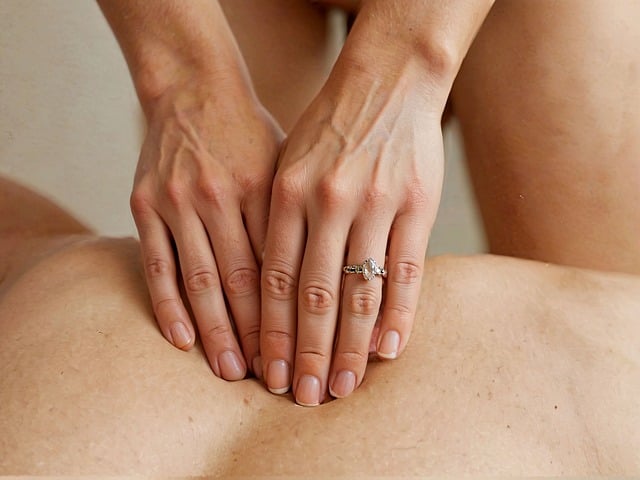Cold plunges, or ice baths (water below 59°F/15°C), are a powerful recovery tool for athletes. They reduce muscle soreness and inflammation, improve circulation, stimulate endorphins, and enhance mental toughness, all crucial for athletic performance and injury prevention. Regular post-workout cold water immersion can significantly speed up recovery times and optimize training routines. This ancient practice is an effective game-changer for both endurance and power athletes, ensuring better physical capabilities and reduced risk of injuries.
“Unleash your inner athlete with the power of cold plunges—a revolutionary practice at the intersection of science and sport. This article explores how submerging yourself in cold water can be a game-changer for endurance and performance. From the science behind it to its diverse benefits, we uncover why athletes worldwide are embracing cold therapy. Learn how incorporating cold plunges post-workout can aid muscle recovery, enhance athletic performance, and even prevent injuries. Discover the simple yet effective method that promises to transform your fitness journey.”
Understanding Cold Plunges and Their Science
Cold plunges, also known as ice baths or cold water therapy, involve immersing oneself in cold water, typically below 59°F (15°C), for a short period after intense exercise or training sessions. This practice has gained significant attention in the athletic recovery and performance realm. The science behind it lies in the physiological response of the body to the sudden exposure to extreme cold. When an athlete’s body encounters cold water, it initiates a series of reactions: blood vessels constrict to reduce blood flow to the extremities, which in turn helps preserve core body temperature. This process accelerates post-workout recovery by promoting faster removal of metabolic waste products and reducing muscle soreness.
Beyond athletic recovery, cold plunges offer several benefits for athletes aiming to enhance performance. The practice has been linked to improved circulation, reduced inflammation, and enhanced mental resilience. Regular exposure to cold water therapy can contribute to better blood flow, ensuring optimal oxygen and nutrient delivery to working muscles, which is crucial for sustained athletic performance. Additionally, the stress placed on the body during a cold plunge stimulates the release of endorphins, natural painkillers that can alleviate discomfort and foster a sense of well-being. For athletes looking to prevent injuries, incorporating post-workout cold water immersion into their routine may aid in muscle relaxation and reduce the risk of damage caused by delayed onset muscle soreness (DOMS).
Benefits of Cold Water Therapy for Athletes
Cold water therapy, or immersing oneself in cold plunges, has gained significant popularity among athletes as a powerful tool for recovery and performance enhancement. This ancient practice involves submerging in water temperatures ranging from 50-59°F (10-15°C), which prompts a cascade of physiological responses beneficial for athletic recovery.
One of the key benefits is its ability to reduce inflammation and muscle soreness post-workout. Cold plunges constrict blood vessels, minimizing blood flow to damaged tissues, which helps to decrease metabolic waste accumulation and reduce inflammation. This process accelerates muscle repair and recovery, allowing athletes to return to training faster and with reduced risk of injury. Additionally, the mental focus required during cold water immersion can enhance mental toughness, a valuable asset for performances in high-pressure situations.
Incorporating Cold Plunges into Your Post-Workout Routine
Incorporating cold plunges into your post-workout routine can significantly enhance athletic recovery and overall performance. After an intense training session, a quick dip in a cold water bath or ice bath has been shown to reduce muscle soreness and inflammation, essential for athletes looking to prevent injuries and speed up recovery times. The benefits of cold water therapy for athletes are multifaceted; it helps flush out metabolic waste products from working muscles, promoting faster healing and reducing the risk of post-workout injuries.
For optimal results, aim for a cold water immersion of around 10-15 minutes immediately after your workout. This practice stimulates blood flow, redirecting oxygen-rich blood back to the muscles, which aids in repairing micro-tears and strengthening muscle fibers. Whether you’re an endurance athlete or a power trainer, integrating post-workout cold water immersion into your regimen can be a game-changer, helping you hustle and bustle through your workouts with improved stamina and reduced recovery time.
The Role of Cold Therapy in Injury Prevention and Athletic Performance Enhancement
Cold therapy has emerged as a powerful tool in the world of athletic recovery and performance enhancement. One of its key roles is in injury prevention, which is particularly beneficial for athletes pushing their physical limits. By immersing oneself in cold water after intense workouts or training sessions, muscles can be effectively relaxed and rejuvenated. This post-workout practice, often referred to as a cold plunge or ice bath, helps reduce inflammation, minimizes muscle soreness, and accelerates the recovery process.
Furthermore, regular exposure to cold water therapy can significantly impact athletic performance. The shock of cold water triggers vasoconstriction, which temporarily reduces blood flow to the extremities, decreasing metabolic demand and allowing more oxygen-rich blood to reach active muscles. This natural response enhances endurance by conserving energy resources and supporting optimal muscle function during prolonged physical activities. Thus, incorporating cold plunges into an athlete’s routine can contribute to better training sessions and improved overall performance.
Cold plunges, or cold water therapy, have emerged as a powerful tool for athletes seeking to enhance their endurance, accelerate recovery, and prevent injuries. By immersing oneself in cold water post-workout, athletes can stimulate various physiological responses that benefit athletic performance. From reducing inflammation and muscle soreness to boosting circulation and promoting faster healing, cold plunges offer a simple yet effective method for optimal sports performance and overall well-being. Incorporating this practice into your routine may be just the game-changer you need to reach new heights in your athletic journey.
